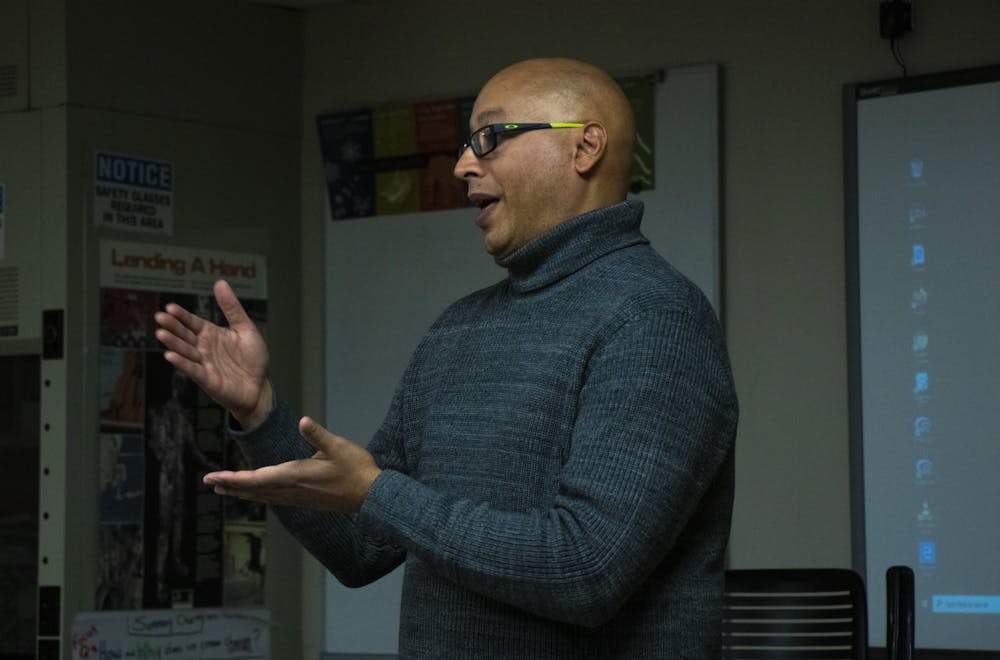Bruce Smail was unknowingly tested for HIV in 2003 because of a paperwork mistake at a doctor's appointment. The test came back positive, changing his life and professional advocacy work to this day.
Smail is now bringing his HIV activism to IU as the interim director of the LGBTQ+ Culture Center. The center had its first discussion event in its Lunch & Learn series, titled “Let’s Talk About HIV with Bruce Smail,” at noon Thursday.
Smail said he makes a point to be open about his HIV status despite stigma because public appearances bring attention to the need for HIV education.
“You struggle with the reactions people have when you’re open about it, so there isn’t an incentive for people to be open because a lot of times there is a rejection,” Smail said.
Smail brought attention to several advocacy issues during the Q&A including stigma against those who are HIV-positive within the healthcare industry.
When he moved to Bloomington to work at IU, Smail said he met with a primary-care physician in Greenwood, Indiana, who was listed as gay-friendly. However, when he showed up at her office he was asked questions such as “Are you gay?” and “How did you get HIV?”
“Asking someone ‘how did you get it’ is almost a useless question because you probably don’t know,” Smail said. “There’s no guarantee that you know where you got it or who gave it to you, and there’s no use in going down that road.”
Smail said while condoms are effective in preventing HIV, it’s important to educate people about alternatives. PrEP, or preexposure prophylaxis, is a pill taken daily that prevents HIV transmission through sexual content 99% of the time and through needle sharing 74% of the time, according to the Centers for Disease Control and Prevention. Smail also mentioned PEP, post-exposure prophylaxis, which lowers HIV risk when taken for 28 days starting within 72 hours of a sexual encounter, according to the CDC.
“People need to make decisions for themselves in terms of how to protect themselves,” Smail said. “There’s more things that are available, whether you’re using condoms or you’re using PrEP.”
Black patients received 16,017 HIV diagnoses in 2018 in the United States, the most within one ethnic group, according to the CDC. The next most prevalent group was Hispanics and Latinos, with 10,097 diagnoses. Smail said while these communities are the most affected by the virus, they often receive the least HIV education and access to preventative drugs.
“How do you work on a plan to end HIV when the community that is most targeted is not engaged?” Smail asked.
Danielle Hernandez, graduate and programming assistant at the center, said the timing worked well for Smail to host the first event in the series since National Black HIV/AIDS Awareness Day was Feb. 7.
“It was not too long ago his own anniversary of finding out that he was HIV positive, and he’s very open about that,” Hernandez said. "I think that made it a salient time for him to share his own story, and I believe in a lot of his previous work he’s done a lot for HIV/AIDS."
Mara Bernstein, LGBTQ+ Alumni Association board member and IU alumna, attended the event and said she values open discussion about topics like HIV.
“He was very generous with his time and his energy to do this talk, and I’m really looking forward to these kinds of conversations happening in the future,” Bernstein said. “There’s so much to get out of it.”




